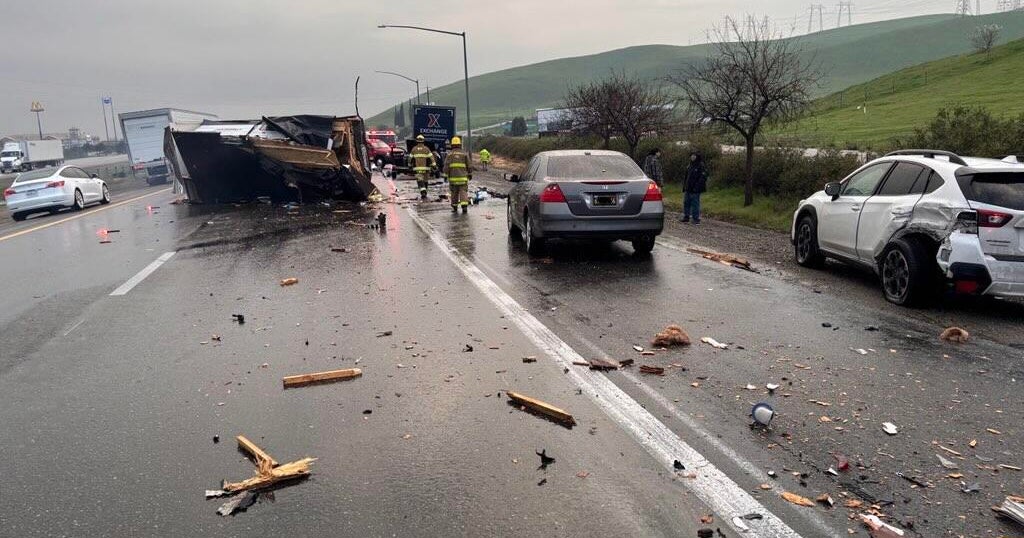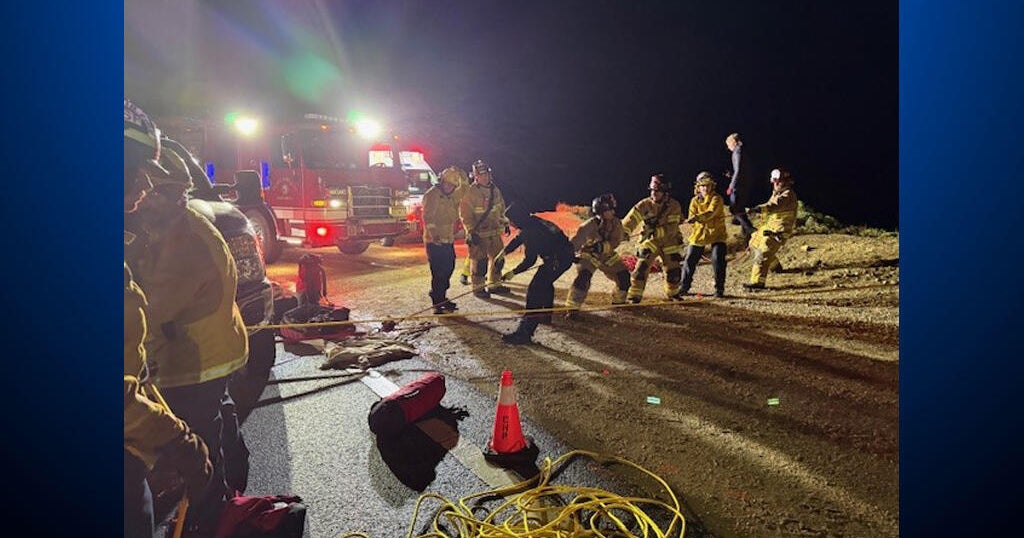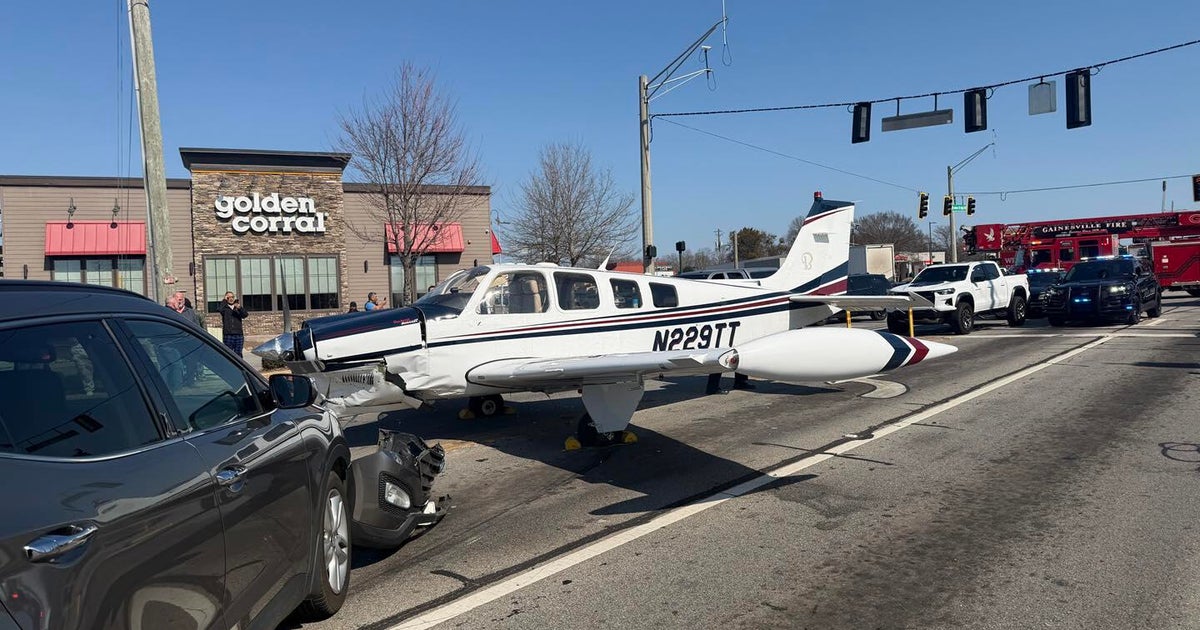The Safest Airline
What's the safest airline in the world?
There's no question. It's El Al, Israel's national airline.
What's the safest airport? Ben Gurion, Israel's international airport.
It's ironic, when you figure that Israeli aviation has been the single most desirable target for terrorists since the 1960s. Correspondent Bob Simon reports.
What do the Israelis do that the Americans don't do? Well, they've had sky marshals since the 1960s. And racial profiling.
But the most important question is: Who's in charge? And the answer may surprise you. The Israelis don't like to advertise who's really running security. But Shlomo Dror, a former Israeli sky marshal, told us.
Says Dror: "The security in Israel is not like the security in the United States. We have the secret service here, he's training the people, he send them to work abroad, some working only with El Al, some working with embassies."
What Dror is saying is that El Al security and airport security is not in the hands of El Al or the airport, but in the hands of the secret service. Dror clarifies, "The secret service training the people…"
It's as if the American Secret Service that protects the President of the United States was also running airport security in the United States.
"Yes," says Dror. "This is the only way that you can do it if you want to be serious."
Since Sept. 11, America has gotten serious about airline security - or has tried to. Dror asks how Richard Reid, the shoe bomber, was ever allowed on that American Airlines flight from Paris to Miami.
"The first thing: Where is your suitcase? You are not going to the United States without any suitcase," says Dror. "How, where are you going to spend your time? Are you, are you going to sleep naked in the Central Park? What are you going to do over there without suitcase? So, this is the first question and that (will) raise a lot of red lights."
In fact, the Israelis got a chance to ask Reid a lot of questions, because he flew El Al last summer. They didn't like the look of him, so they checked everything in his bags, and everything he was wearing, and then put an armed sky marshal in the seat right next to him.
Dror adds, "I can tell you more than that, I am sure that even the time that he spent here in Israel, we know exactly when he went, where he (had) been, who he meet with."
Israelis have been chasing that kind of information ever since terrorists started blowing up airplanes and shooting El Al pilots. In 1969, one of the country's first sky marshals, Mordechai Rachamim, became a national hero when he jumped off an El Al plane in Zurich with a handgun to subdue four terrorists who were shooting from the runway with automatic weapons.
Recalls Rachamim, "And I started with shooting with my sall pistol (a Beretta .22 caliber pistol)."
The terrorists had much bigger guns (Kalashnikovs), but Rachamim managed to kill one of the terrorists.
"Yes and they killed one of us - the pilot," he adds.
Rachamim helped the Swiss capture the three other terrorists. Three years later, hijackers forced a Belgian plane to land in Israel and demanded the release of hundreds of Palestinian prisoners. Rachamim was part of a special unit that freed the passengers and killed or captured all the hijackers, a successful operation.
There have been no hijackings of Israeli planes in recent years, he says, "because they saw it is impossible to make hijacking."
And Shlomo Dror says that, while there are sky marshals on every flight, they are the last line of defense. If they have to spring into action, it means the security system has failed. Where does the system begin?
"We have a list of names, people who are involved in terrorist action," he explains, "and, of course, we are checking all the names... We are running them through the computer."
They run every name through. Every person who goes to the airport, they have already checked that name. "The moment that you buy the ticket, we have your name, we have your passport number, and we can check it," Dror says.
They check you again when you drive to the airport in Tel Aviv. What looks like a tollbooth is actually a security gate. Guards with automatic weapons eyeball everyone. If you drive through too quickly, there's another guard further down the road. And the rings of security tighten as you arrive.
Before you even enter the terminal, you've been through three rings of security. The minute you buy your ticket, your name is sent to Israeli intelligence and to Interpol, so they know quite a bit about you before you even get to the airport.
The second ring is a gate with armed guards inspecting your car.
The third ring: Men with jackets and sweaters, concealing their weapons, who will watch you come in.
Three checks, and you haven't even entered the terminal yet – which is where the real security begins.
Security there is a far cry from American airports, like LaGuardia in New York. There is no curbside check-in in Israel. You can't run to the counter at the last minute, or pay for your ticket in cash, unless you want to be questioned for hours.
In the States, the National Guard is everywhere. In Israel, the security is almost invisible. You won't see anyone with a uniform.
"Why should we? It is not a fighting place," says Efraim Sneh, Israel's minister of transportation.
But that doesn't mean nobody there has a weapon. In fact, about 50 percent of the people working at the airport are involved in security, and many of them are very well armed. Some of them, you can spot, like the guys looking for bombs behind vending machines and in trash cans every few minutes. Others, you'd never spot unless they have reaon to spot you.
But more likely than not, the first security official you will encounter is a young woman in her early 20s, a student probably, fresh out of the army. She will want to ask you a few questions. Merav Rosen is a supervisor. She's 28 and has worked at Ben Gurion seven years.
What is she looking for?
"Anything out of the ordinary, anything that does not fit," she says. "People that ask too many questions, people who seem to be lying, to be hiding something from us. We look for the extraordinary, what is not normal, what we don't know as normal."
Before she started working at the airport, Rosen was in the Israeli army, in intelligence. She and the people working under her are profilers. That's what they're called. They question passengers, sometimes extensively, to see if they match secret profiles of suspected terrorists.
"Profile" may be a dirty word in the United States. But Sneh's reaction is: "We have to secure our passengers, our airplanes, and words do not scare us. Bombs do."
Until recently, Rafi Ron was director of security at the Tel Aviv airport. He knows how sophisticated terrorists have become.
"We believe that profiling is a very important concept in aviation security," he says. "Finding a bomb is not such an easy thing. Bombs don't look any more like a black, round thing with a smoking fuse coming out of them. They take…almost every possible shape. They are created out of so many type of materials that it has become extremely difficult to find the bomb."
That's why it's so important to find the terrorist before he gets on the plane. And the Israelis say they cannot do that without profiling, or selecting, passengers who match certain profiles.
Explains Rafi Ron, "It is much more difficult to find out the naïve people that are being used by terrorists. Take, for example, the famous case of the Irish girl in the '80s whose name is Anne Marie Murphy."
In 1986, Anne Marie Murphy, a young Irish woman, was planning to take an El Al flight from London to Tel Aviv to meet the parents of her fiance, a Palestinian. Murphy, who was pregnant, had no idea that the man she was planning to marry had hidden plastic explosives and a detonator in one of her suitcases. Israeli profilers interviewing Murphy found out about her boyfriend, got suspicious, and then discovered the bomb before the jumbo jet took off.
"It is quite intrusive, the questions we ask," explains Rosen. "And, sometimes, people are not happy to answer them. But we try to explain that this is the situation, and in Israel, we can't afford to miss."
Nobody knows that better than Rosemary Mahoney. She's a writer from Rhode Island, not a terrorist. But she was grilled by El Al profilers two years ago when she tried to fly on a one-way ticket from Bombay to Tel Aviv.
"The questions were shocking," she says. "Not just where I had been, but what hotels I had stayed i. Did I have receipts for those hotels? What were the names of the people I had met while I was in India?… Where was my ticket home? I didn't have one."
That was a wrong answer. She recalls, "Unfortunately, almost everything about me was wrong."
For example: "Well, I had a visa. I'd been to Egypt several times and a visa to Syria. And that stopped him."
He didn't like Syria. And if they had questions about Syria, they had even more questions about her luggage.
"Every last item in my luggage had been taken out and spread out on tables about the room. Every last thing," recalls Rosemary Mahoney. "And there was a man at the end of the room, feeding everything into an X-ray machine."
What happened to Rosemary Mahoney happens every day at the airport in Tel Aviv. Bags are passed through highly sophisticated, bomb-detecting machines. Nothing is sacred. And if agents have any suspicions, the bags get strip searched, down to the last sock.
And if an agent doesn't trust you -- or like you, particularly -- he might not let you get on the plane. That's what happened to Rosemary Mahoney.
She was singled out.
"Yes… It wasn't pleasant. I was actually very anxious. And didn't really know what would happen to me," she says.
But after Sept. 11, she decided that El Al has it right, and the Americans should take a good look.
Explains Mahoney, "El Al knows -- and has known for a long time -- that it's a target. Now my feeling is, we've also known for some time that we're a target… My feeling really was, 'Have we learned nothing? Have we not learned our lesson?' …It does make me feel that we are a bit dumb."
Well, dumb or not, the Americans are beginning to study El Al, carefully. And the Israelis think that's a smart idea.
Says Sneh, "We can be very helpful, if we share with them our experience, our knowledge, and El Al, by the way, offered it to various U.S airlines."
Has anything changed there since Sept. 11?
"No. Nothing," Sneh replies.
Why? Because they had the system in place and they thought it was good enough.
What does Mordechai Rachamim, the Israeli sky marshal, say the American attitude should be now? "The attitude must be that they have to wake up every day, every morning, and say, 'This morning, there is going to be an attack.' …It doesn't matter if you are a bodyguard, or if you are dealing with hijacking or security. You have to say every morning, 'Today, this morning, there's going to be an attack.'"
© MMII, CBS Worldwide Inc. All Rights Reserved



